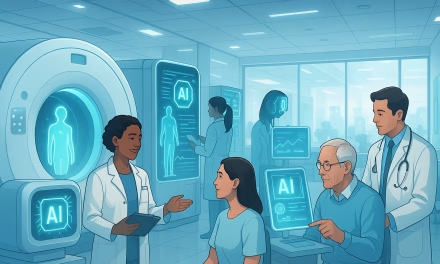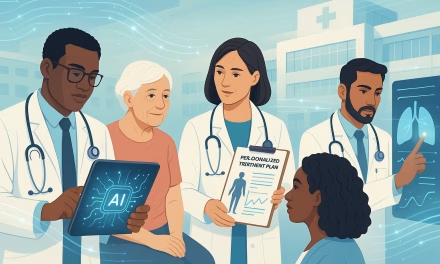July 11, 2025, underscores the transformative impact of Artificial Intelligence on the health and wellness sector, particularly through the rapid adoption of AI scribes and smart systems that are revolutionizing clinical efficiency and patient safety.
Healthcare providers are rapidly integrating AI scribes that automatically draft clinical notes during patient visits. With over 20% of physicians now using AI for progress notes and discharge summaries, this technology is significantly reducing administrative burdens, freeing up valuable time for doctors to focus on direct patient care. This shift is a key driver of the explosive growth in the AI healthcare market, projected to reach $110.6 billion by 2030 from $21.7 billion in 2025.
Beyond documentation, AI is being integrated into smart building systems and hospital operations to detect safety risks. By synthesizing markers for conditions like sepsis and delirium, AI enables early intervention, potentially saving lives. Hospitals are also deploying AI chatbots for appointment scheduling and patient triage, further streamlining operations and enhancing patient experience. These systems help administrators allocate resources more effectively across health systems, optimizing overall efficiency.
However, this rapid implementation must be balanced with careful consideration of privacy concerns around patient data sharing. Maintaining transparency and ensuring human expertise remains central to decision-making are paramount for responsible AI deployment in healthcare.
The developments on July 11, 2025, collectively illustrate that AI is not just a tool for automation but a powerful partner in enhancing the quality and safety of patient care. By streamlining workflows, improving diagnostic accuracy, and proactively identifying risks, AI scribes and smart systems are paving the way for a more efficient, safer, and ultimately more human-centric healthcare future.





